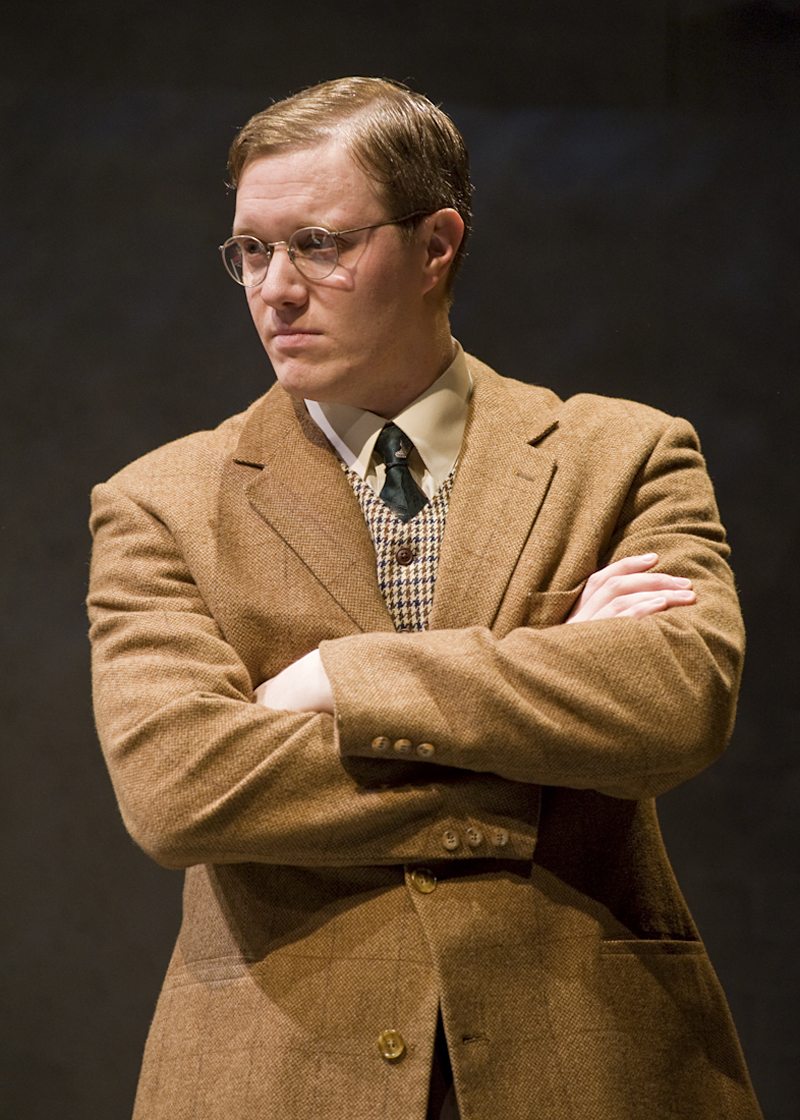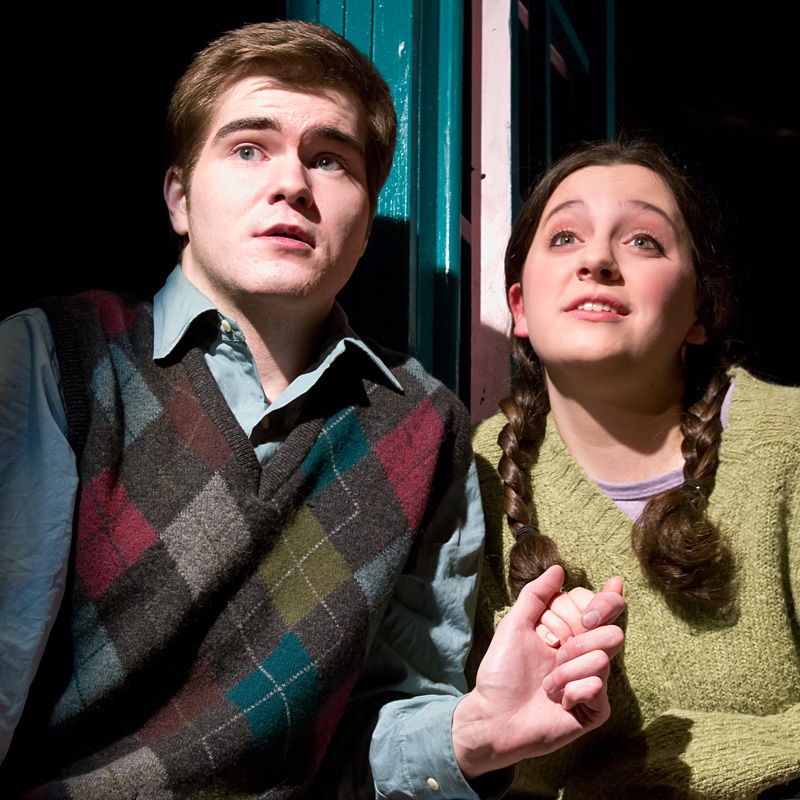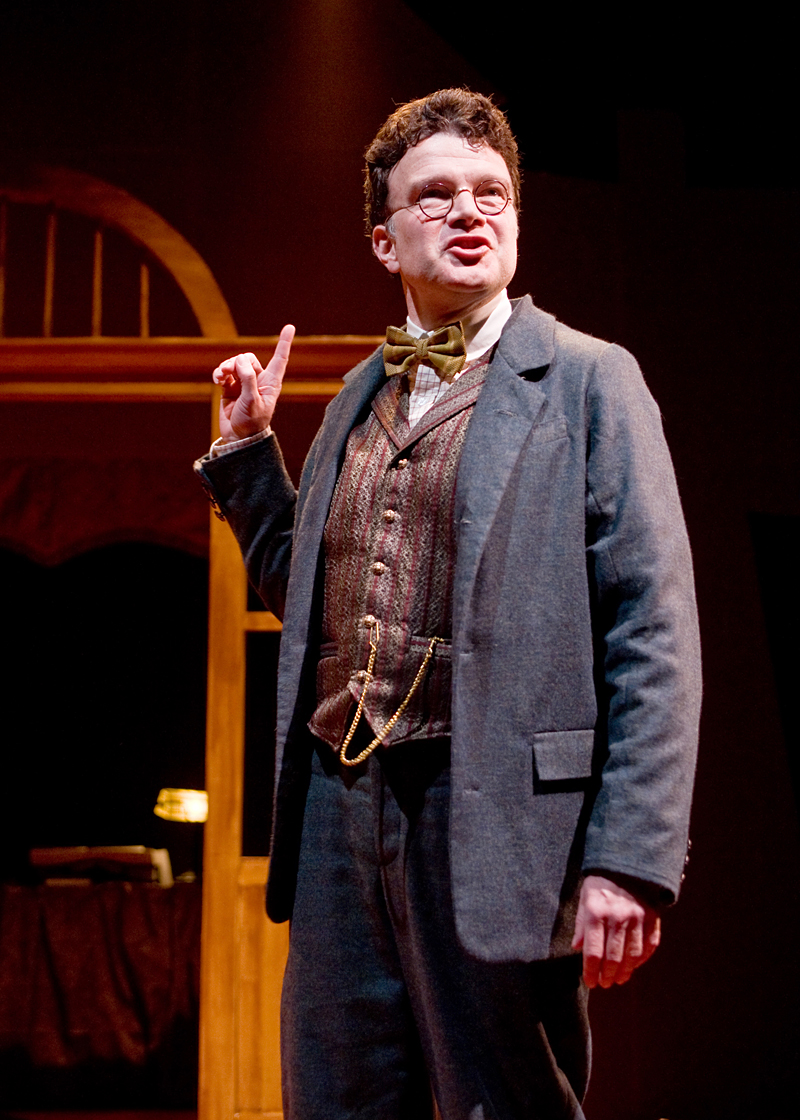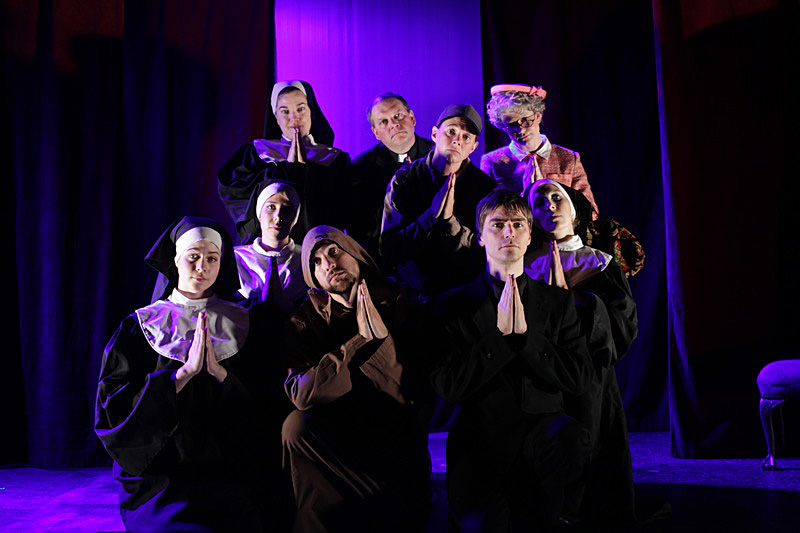At some point during the research for his 1978 play, Douglas Anderson clearly fell in love with its hero, Dietrich Bonhoeffer (1906–1945). It’s easy enough to do. Bonhoeffer was the little guy who famously stood up to the Nazis. He had the conviction of his Lutheran beliefs, and he had morality on his side (even if things weren’t so obvious outside Germany in 1933, when the play is set). And if Beams is to be believed, he also didn’t have any flaws. The worst that can be said of this pastor that is he was too nice, too righteous, and too hardworking. That strength of character may make for a great man, but it doesn’t make for very interesting drama.
Though Bonhoeffer (Matt Shimkus) spent most of his life as a committed pacifist, the play begins as he agrees to join the Abwehr, the military-intelligence agency that frequently clashed with the SS. In this newfound position, Bonhoeffer operates as a double agent, conspiring on multiple occasions to assassinate Hitler. We all know how that turned out, and thus the entire second act takes place in Bonhoeffer’s prison cell.
In spite of the play’s potential—assassination plots, arrests, treason!—Beams has almost no conflict. Except in one brief scene, Bonhoeffer’s enemies never stride the stage. Instead it’s two hours of a bunch of well-meaning Germans agreeing with one another that Nazis are bad. Taproot’s production does little to add excitement. The actors are generally fine, but never fiery. Mark Lund’s entirely gray scenic design unintentionally emphasizes the tepid story. Good and evil were never so bland.








